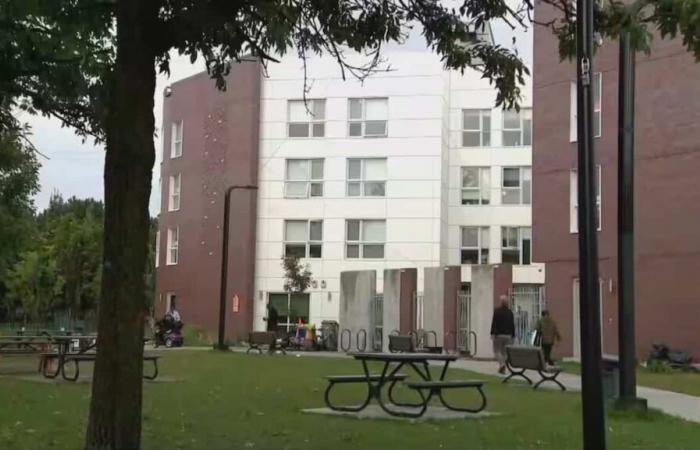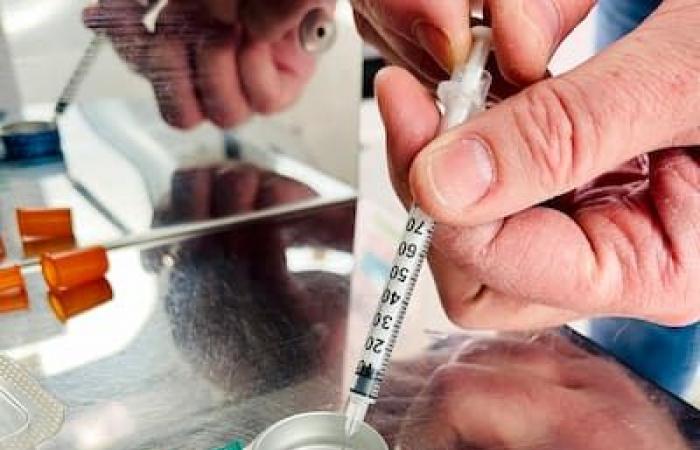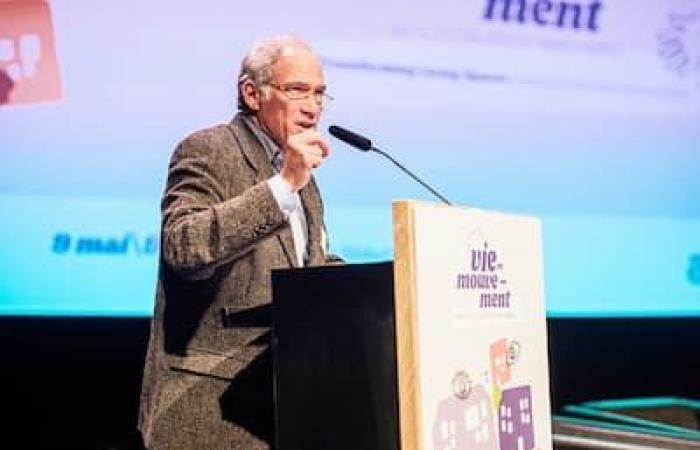The Quebec government intends to prohibit the opening of any supervised drugs center within 150 meters from schools and daycares.
This is what we learn in a bill Tuesday tabled by the Quebec Minister of Social Services, Lionel Carmant.
“Its objective is to strengthen the feeling of citizens’ security and their confidence when they entrust their children to establishments such as schools and daycares,” said Carmant in a press briefing in the afternoon.

Lionel Carmant, Minister of Social Services, in a press point on May 6, 2025. Screenshot from the National Assembly website
With this bill, the Minister gives himself the right to authorize any new supervised injection center and imposes several conditions to give the green light. For example, the organization must ensure that activities “do not exceed the normal disadvantages of the neighborhood” and that they do not compromise “cleanliness, health and safety in the surroundings of the premises”.
The Minister thus wants to force those responsible to “ensure that people do not consume or that he does not sell drugs around the site,” he said in front of the media.
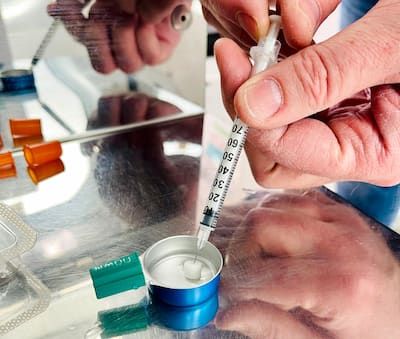
Several sites across Quebec offer supervised drug consumption to ensure user safety. Photo Louis-Philippe Messier
Existing sites too close
The Minister has been preparing this legislative measure since the end of the summer of 2024, after the controversy of Maison Benoît Labre in Montreal.
This organization opened in the spring of 2024 in the field near a school.
-The fears of parents of students had quickly materialized, while many incidents related to drug use and violence were reported.
If the bill is adopted, the Benoît Labre house, located 50 meters from the Victor-Rousselot primary school, could also have to move its supervised consumption service in four years. The same goes for the Regional Action Office AIDS (Bras), in Gatineau, located too close to a daycare center.
Indeed, existing supervised consumption centers would be granted four -year permits, after which they should comply with the new regulations.
The organizations housed in an establishment of the health network are however exempt from the bill. For example, Dopamine, a supervised injection center in the Mercier-Hochelaga-Maisonneuve borough, will be able to stay in its premises located in the CLSC Hochelaga-Maisonneuve even if they are located 90 meters from a daycare.
The middle stung
The four organizations offering supervised consumption services contacted by The newspaper Tuesday refused our interview request, preferring to study the bill before reacting.
Louis Letellier de St-Just, member of the board of directors of the Association of Speakers in Toxicomia of Quebec (AIDQ), argues that the environment sees this bill as a “betrayal”. He fears that he greatly limits the ability of organizations to accomplish their mission.
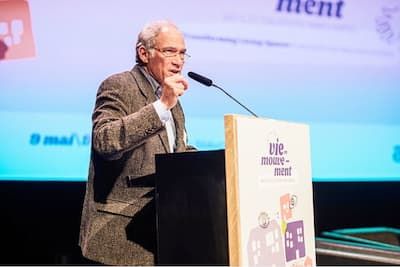
Louis Letellier de St-Just, Chairman of the Board of Directors of the Association of Quebec Dependence Stakeholders. Photo provided by Louis Letellier of St-Just
“We respond to the ministerial strategies for the prevention of overdoses, public health and there we come to shrink our field of action and we point the finger as being responsible for a social cohabitation that slips,” he is indignant on the phone with The newspaper. […] These are health services, these are not sales services and they must find themselves where the needs are felt. ”

